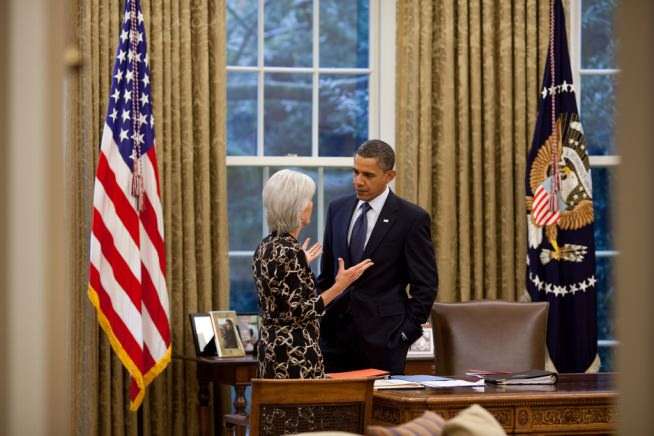How ObamaCare's Individual Mandate Could Go Down

Over at The Atlantic, Chris Frates covers Senate Minority Leader Mitch McConnell's "secret plan to repeal ObamaCare," which turns out to be an old plan to repeal the law's mandate through the reconciliation process after regaining the Senate majority in the 2012 election. The plan ran into a small problem with Republicans took it in the eye at the polls. They didn't win the presidency, and they didn't retake the Senate either.
But the push to repeal ObamaCare's individual mandate is not dead yet. Republicans in Congress already see it as vulnerable simply because it's the least popular part of the law. Implementation troubles could mean that the requirement becomes even less popular by the end of the year.
ObamaCare's health insurance exchanges are currently set to start enrolling people in October. Or at least they're supposed to. Recent comments from federal officials, however, involved in the exchange process do exactly inspire great confidence.
"It's only prudent to not assume everything is going to work perfectly on day one," Gary Cohen, a Medicare official who is heading up the implementation process for the administration, recently told a group of health insurance industry insiders. Cohen's colleague Henry Chao, who is managing the technology behind the exchange, told insurers he was "pretty nervous" about the start of enrollment. And while Cohen continued to insist that every state would have an exchange ready by October, he admitted that the federal government was making contingency plans, noting that "there is some possibility that the type of exchange may be different than what we're looking at today." A recent survey of health industry executives, meanwhile, found that 70 percent did not think the federal government would have the exchanges ready on schedule.
So what happens if the exchanges aren't ready on time? Or what if the exchanges open—but there are big problems with enrollment? The exchanges, which are intended to both allow individuals to select insurance plans and determine eligibility for the law's subsidies, are the primary vehicle for individual compliance with the mandate. Which means that if even a handful of the exchanges—remember, there's one for every state—aren't open or aren't broadly functional, then large numbers of people are likely to have trouble complying with the individual mandate.
And if that happens, there will be an awful lot of pressure to repeal, or at least delay, the mandate. Indeed, it's the kind of pressure you can plausibly imagine pushing Democrats to vote against the requirement. Remember, many Democrats were wary of the mandate. As a White House candidate in 2008, President Obama openly opposed it. If complying with the mandate is difficult enough, then it's possible—maybe not likely, but possible—to imagine Democrats agreeing to strike the provision, or delay its implementation.
And what then? Well, Democrats have (probably correctly) pointed out that the law's insurance industry reforms don't really work without a mandate to ensure that most everyone buys in. But here's the thing: If the mandate gets taken down under the above scenario, it'll be because the law isn't working with the mandate either.


Show Comments (14)